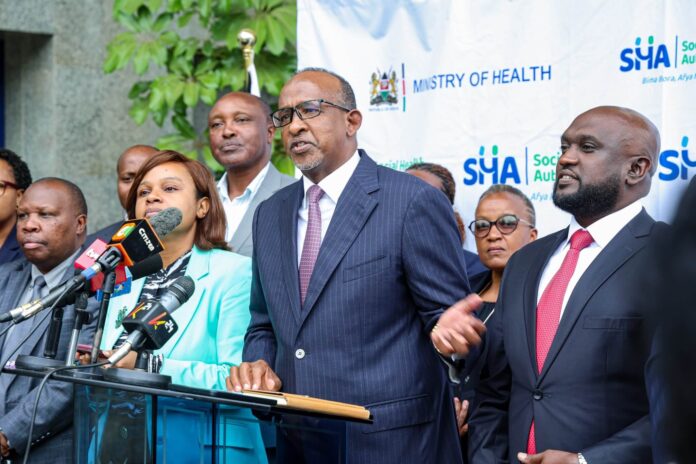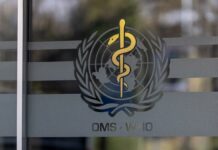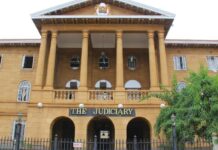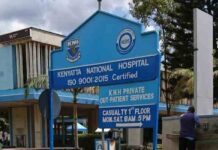Health Cabinet Secretary Hon. Aden Duale has launched a 24/7 nationwide call centre (hotline 147) that will allow Kenyans to report poor service, corruption, and malpractice in real-time.
The hotline forms the backbone of what the Ministry calls a “citizen-powered accountability system”—part of broader reforms under the newly rolled-out Social Health Insurance Fund (SHIF) and TaifaCare programme.
“This call centre will be the ears and eyes of the public,” said Duale, speaking at the Social Health Authority (SHA) headquarters. “You—the people—are the watchdogs of the health sector. If you are mistreated, overcharged, denied care, or witness abuse, call 147. Your voice matters.”
The 147 hotline, already operational, is staffed by trained health officers and data specialists who will log, track, and escalate every complaint to the relevant ministry department—something the Ministry says will bring an end to the culture of silence and impunity in public hospitals and clinics.
The move comes at a time when confidence in public healthcare is low, with long queues, shortages, ghost workers, and bribe demands routinely reported across the country.
The call centre complements a push to have every Kenyan registered on the SHIF system, via *147# or the Afya Yangu app. Those registered will not only access subsidised medical services but also become part of a nationwide digital database used to monitor hospital performance.
To support the system, the Ministry has also deployed 6,484 healthcare interns across counties, signalling a renewed focus on human resources for health.
“Reform isn’t just about policies—it’s about responsiveness. This call centre means no Kenyan is alone when they walk into a hospital,” Duale said.
Still, analysts say sustained political will, data protection, and enforcement will determine whether the hotline becomes a tool of change—or just another complaint box.
For now, the government is betting that restoring public trust starts with giving citizens a direct line to power.



















